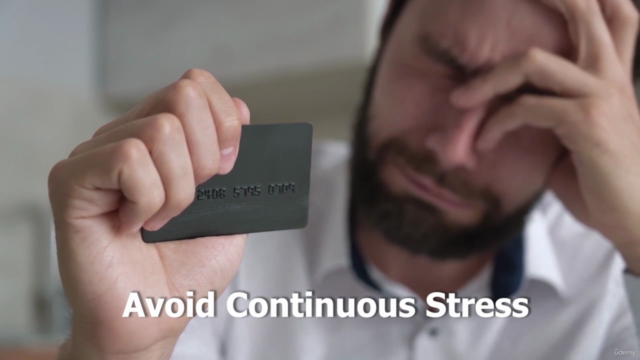Overcoming anxiety and stress disorders

Why take this course?
🌱 Overcoming Anxiety and Stress Disorders: A Comprehensive Guide
Introduction: Embracing Calm Amidst Chaos
If you're grappling with anxiety, you're not alone. Anxiety is a common human experience, often triggered by various factors that can range from everyday stressors to more severe stress disorders. The good news? There are strategies you can employ both immediately and in the long-term to manage and overcome these feelings.
Immediate Relief: Quick Ways to Calm Your Anxiety
When anxiety strikes, it's crucial to have a toolkit of quick remedies at your disposal. Here are five effective techniques to help you regain control and ease your immediate symptoms:
-
Challenge Your Thoughts: Anxiety often feeds on negative or exaggerated thoughts. By questioning these thoughts, challenging their validity, and reframing them in a more positive or realistic light, you can take back control.
-
Deep Breathing: A simple yet powerful tool is to practice deep, focused breathing. The 4-7-8 technique, where you breathe in for 4 seconds, hold your breath for 7 seconds, and exhale for 8 seconds, can be particularly effective. Repeat this cycle four times to help calm your nervous system.
-
Aromatherapy: Aromatic essential oils like lavender, chamomile, or sandalwood can have a soothing effect on your brain and help alleviate feelings of anxiety.
-
Physical Activity: A brief walk or 15 minutes of gentle yoga can shift your focus from anxious thoughts to physical movements that promote relaxation and well-being.
-
Journaling: Writing down your thoughts and feelings can help you process them more effectively, making them less overwhelming and easier to manage.
Long-Term Strategies: Building Resilience Against Stress
While these immediate strategies are helpful, they are often not sufficient for those with chronic anxiety or stress disorders like Generalized Anxiety Disorder (GAD). In such cases, a combination of therapies and lifestyle changes is necessary. Here's how you can build long-term resilience against stress:
-
Professional Therapy: Cognitive Behavioral Therapy (CBT) and other forms of therapy can be incredibly effective in treating anxiety disorders. A mental health professional can guide you through these processes.
-
Medication: In some cases, medication prescribed by a healthcare provider can help manage the chemical imbalances contributing to your anxiety.
-
Mindfulness and Meditation: These practices can help you stay present and reduce rumination, which often exacerbates anxiety.
-
Healthy Lifestyle Choices: Regular exercise, a balanced diet, adequate sleep, and reducing caffeine intake can all contribute to lower stress levels.
-
Social Support: Building strong relationships with friends and family can provide emotional support and help you navigate stressful situations.
Conclusion: A Path Forward
Overcoming anxiety and stress disorders is a journey that involves both immediate coping mechanisms and long-term strategies. It's a process of learning to recognize your triggers, understanding your thought patterns, and employing various tools to manage your symptoms effectively. By taking proactive steps to address your anxiety, you can lead a more balanced and fulfilling life.
Remember, it's essential to seek professional help if you believe you are struggling with a stress disorder like GAD. With the right combination of treatments, support, and self-care, you can learn to control your anxiety rather than letting it control you. 🌈
Course Gallery




Loading charts...